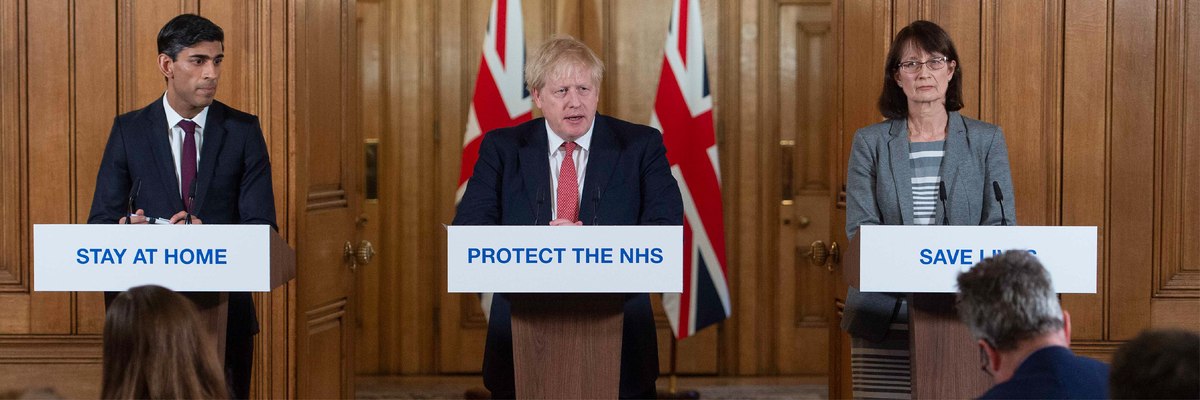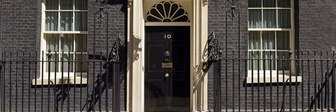One of the notable things about the coronavirus crisis is how it’s caused politics to go into voluntary self-isolation. I mean the sort of politics we’re so familiar with: each side taking chunks out of the other for ‘not caring’,; ‘being fixated with their own ideologies’; ‘only in it for themselves’; ‘serving their mates and not the national interest’; ‘sleazy’; ‘corrupt’. I could go on and I suspect you could add your own to the list . So what’s happened to it? Politicians are keeping much more than two metres away from their opponents. Partly, of course, it’s because a national crisis demands good behaviour and a show of unity. But there’s more to it than that: it’s that there’s no actual ‘political’ content in what currently preoccupies us. Rather, it’s simply about the practical matter of getting things done. In short, it’s about government not politics. The thing is, though, that when it comes to government, it’s we, the voters, who choose to put in power. And we do so overwhelmingly according to political profile not governing proficiency. Has something gone awry here?
Take the issue that has understandably exercised us all during the last week: the failure to get a fully-functioning testing regime for the infection up and running. No one is suggesting for a moment that this is due to ministers having an ideological aversion to doing so, say, or wanting to save money so that they can fund tax cuts, or because they simply couldn’t care less that doctors and nurses are scandalously exposed to the disease they are there to treat. Those are the sort of charges that might be levelled at them if this were a political issue. But everyone can see the testing issue is nothing of the sort. It is, fundamentally, an administrative problem. It may well be possible to argue that ministers have made some wrong decisions, but no one imagines that it was done in bad faith. Whether the root of the problem is the difficulty of sourcing vital chemical reagents or whether it hinges on a calculation of which institutions were more likely to provide the testing services most quickly, the issue is administrative, and opposition politicians are quite properly asking questions and making suggestions about the purely practical matters of governing. Politics doesn’t come into it.
Set such literally life-and-death issues facing government against what normally dominates politics and one gets a bit of a shock. It now seems almost fantastical that politicians should have spent three years talking about little else than Brexit. It’s not that it wasn’t an important issue. Nor does whether you were pro or anti bear upon the matter: the point is that the politics of those three years was all about positioning, about manoeuvres, about who would up on top, while the actual business of government largely went by default. If you think that’s an exaggeration, try writing a list of the things that a government is there to sort out but that in those three years hardly got a look in. I’ll start you off: social care, how the railways are run, the state of the prisons … . Sit down, it’ll take you a while.
I make the point not to attack Theresa May’s government in particular. I just want to draw attention to something that in normal times we tend to overlook but which comes sharply into focus at times of crisis like this. What politics is about is quite different from what governing is about.
Tony Blair spotted this. No one in recent times has been a greater practitioner of the art of politics than he. Indeed he received the supreme accolade when the last set of opponents he faced on the Tory benches, the young David Cameron and George Osborne, sat at his feet to learn the art and explicitly referred to him as ‘the Master’. Blair knew exactly how to deploy the political skills necessary to win power and to keep it. But some years into office he confessed that governing – doing the very job his political brilliance had secured him – was a very different business and very difficult. He had seemed to assume that those political skills – of burnishing an image, putting together a glossy programme and (as he was once caught saying) identifying issues and policies ‘with which I can be personally associated’ – were all that was necessary. They’d ensure he got elected and then all that was needed was to issue the order that the programme should be implemented and, hey presto, it would all happen: the government would govern. But it turned out not to be a bit like that and, as he later put it, he had scars on his back to prove it.
If this sounds like a surreptitious attack on the civil service, the body that has to carry out the administration of government, it isn’t meant to be. It’s true that in a typically British, self-congratulatory way most of us (Dominic Cummings is one of the exceptions) tend to think of the civil service as an absolutely first-class, Rolls-Royce institution that can effortlessly do pretty much anything. All tine politicians have to do is ask. That is patently not true. In fact it is, like any other human institution, fallible. It is often starved of resources. It is riddled with internal rivalries. It’s also true that it often rises to great challenges. But, like any other institution, it has a breaking point.. Whether it is being strained beyond that breaking point by this crisis we have yet to learn.
My point, quite simply, is that this is a crisis of governing not of politics. Politics, as we familiarly understand it, seems almost frivolous in the context. Yet – and here’s the rub – it’s through the acting out of the political ‘game’ (a revealing word) that we choose who should govern us. Does that seem the best way of ensuring good government?
Boris Johnson is the obvious current case of what I’m getting at. The Conservative leader’s skills as a politician are there for all to see and are confirmed by his success in getting to the top of Disraeli’s ‘greasy pole’. But the qualities and capacities required to govern once he’s got there are utterly different. Especially in a crisis. If you compare the Boris Johnson we all remember from his campaigning days to the prime minister standing, exhausted, in front of a lectern in Downing Street exhorting us all to stay at home, it’s as if they are two different people. Whether he, the agile political maneuverer, can also be an effective leader of an administrative government under great strain is, as of now, an open question. The issue, though, is why high marks in the first role should be qualification for promotion to the second.
How else, though, can democracies choose their governments except through politics? Maybe this mismatch between the skills of politicians and what’s needed to secure good government is a price we have to pay for democracy. After all, if politicians screw up the business of producing decent, effective government, we can always throw them out and take our chances with another bunch of … yes… politicians. We might at the same time be crossing our fingers and praying that the civil service will bail us out).
There is an alternative, of course. We could take democracy out of the equation. Whatever we may otherwise think of it, the Chinese Communist Party, after seventy years in power, has certainly mastered many of the skills of governing. Even if it can be charged with having faltered initially, its decisive and draconian action over the coronavirus pandemic would seem (at least as of now) to have been highly effective. Chinese politicians don’t have to do what our politicians have to do: their ‘politics’ is much more about how to function in and operate a system interested only in governing. They get good at it.
Which is better? I know what the usual answer in the democratic West would be and I certainly know what I think. Living under an authoritarian regime, however effective at governing, is unimaginable. Even so, are we sure we’ve worked out the best way to choose those we entrust with providing a government that works, especially if they have suddenly to face a crisis as immense and unprepared for as this one?
What’s your view? Let us know.











